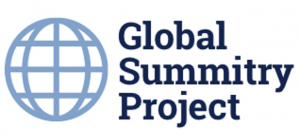
Now, turning back to the Global Summitry Project (GSP) and the Vision20 – collective efforts of Yves Tiberghien, Professor of Political Science and Konwakai Chair in Japanese Research at the University of British Columbia (UBC), Colin Bradford, nonresident Senior Fellow from Brookings and myself, the Director of the Global Summitry Project. We have initiated various research initiatives.
A critical major effort over some three years has been the China-West Dialogue Process (CWD). The CWD has been Co-Chaired with Colin Bradford, the lead Co-Chair of the CWD and myself. This initiative has held some twenty plus virtual gatherings and many participants are set to gather in person for the first time in years at the Global Solutions Summit in Berlin May 15-16th <https://www.global-solutions-initiative.org/programs/china-west-dialogue/?utm_source=MASTER_Verteiler&utm_campaign=33fe63ffef-EMAIL_CAMPAIGN_2019_11_11_10_44_COPY_01&utm_medium=email&utm_term=0_4f4e08bb85-33fe63ffef-447373003> to focus on US-China relations and assess how the G20 can advance critical, and dramatically needed global governance issues – global debt management, climate change policy, global food security and health security.
What is required, however, and is currently missing, is that the two leading powers turn their minds to such critical global governance policy efforts – both bilateral and multilateral. From the beginning the CWD has targeted first Trump policy and now Biden foreign policy. Trump Administration officials made it clear that ‘engagement with China’ born in the Nixon Administration was at an end. Both Administrations called for competition though not for conflict. The outcome so far, especially for bilateral relations has been dismal.
As my Co-Chair Colin Bradford wrote on March 7th: “The strategic competition between the US and China is real and must be accepted and managed. But the confrontational narratives of this binary relationship are dominating and weakening global leadership and governance and present a threat to the global order.” As the Editorial of the NYTimes, today, March 12th, urges: “Americans’ interests are best served by emphasizing competition with China while minimizing confrontation. Glib invocations of the Cold War are misguided. It doesn’t take more than a glance to appreciate that this relationship is very different. Rather than try to trip the competition, America should focus on figuring out how to run faster, …” <https://www.nytimes.com/2023/03/11/opinion/china-us-relationship.html?referringSource=articleShare>. Competition is not the problem for the Biden Administration; but collaborative policy making certainly appears to be. And current policy has made it more difficult. All one needs to do is to examine the interaction of the Biden Administration and the Chinese Government and Party on “balloon gate”. As Paul Herr of the Chicago Council identifies in his post at EAF: <https://www.eastasiaforum.org/2023/03/12/ballooning-mistrust-in-the-us-china-relationship/?utm_source=newsletter&utm_medium=email&utm_campaign=newsletter2023-03-12> “Washington and Beijing’s response to the appearance of a Chinese surveillance balloon over the United States in February 2023 illustrates several aspects of the current US–China relationship that will make it very difficult to reverse the downward spiral in bilateral ties. The episode displayed mutual distrust, latent hostility, a failure to communicate and the adverse impact of internal politics on how the two sides deal with each other.”
As the CWD has identified at the GSI CWD Website – <https://www.global-solutions-initiative.org/programs/china-west-dialogue/> “The CWD’s fundamental goal is to help reshape the narratives and behaviours of US-China relations from friction to function by engaging other middle and major powers and emerging powers in a reframed China-West relations in G20 processes and other public forums. The aim of the Project is to identify new political dynamics that yield more productive relations in the international system.” At the CWD has identified, and noted by Colin Bradford on March 7th: “The CWD has concluded that the G20 is the most important platform for profiling and actualizing these alternative political dynamics in the year-long official G20 processes, which could enable convergence on systemic threats and ease geopolitical tensions.”
It is a challenging goal in the face of current difficult US-China relations – but crucial for settling global order relations that have become ‘so rocky’ and unsettled in the last several years.
March 12, 2023

